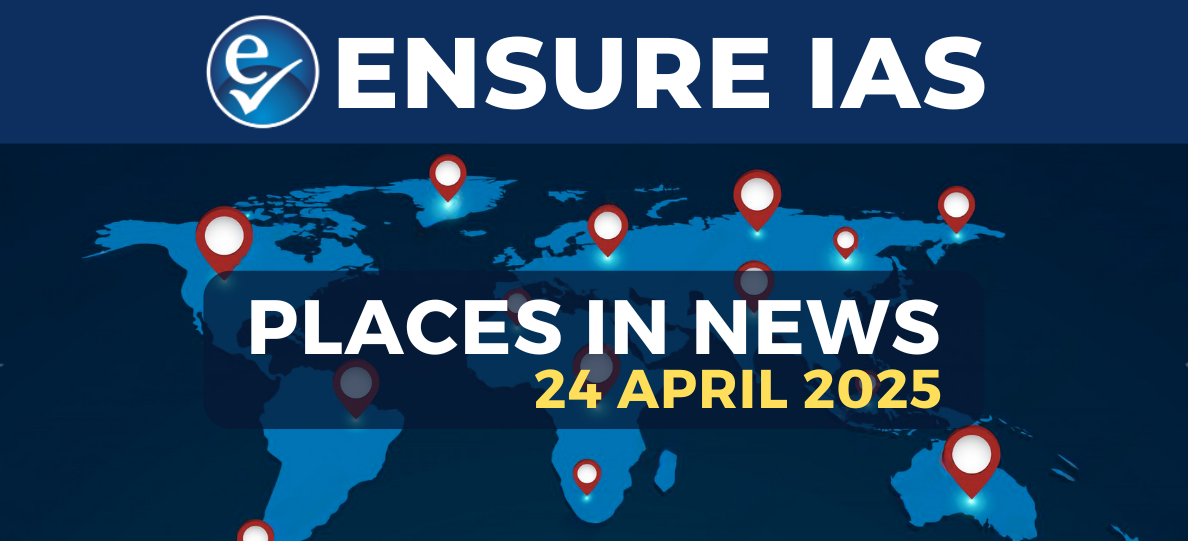- Courses
- GS Full Course 1 Year
- GS Full Course 2 Year
- GS Full Course 3 Year
- GS Full Course Till Selection
- CSAT
- 5 LAYERED ARJUNA Mentorship
- Public Administration Optional
- Online Program
- GS Recorded Course
- NCERT Batch
- Polity Module Course
- Geography Module Course
- Economy Module Course
- AMAC Module Course
- Modern India, Post Independence & World History Module Course
- Environment Module Course
- Governance Module Course
- Science & Tech. Module Course
- International Relations and Internal Security Module Course
- Disaster Management Module Course
- Ethics Module Course
- Essay Module Course
- Current Affairs Module Course
- ABOUT US
- OUR TOPPERS
- TEST SERIES
- FREE STUDY MATERIAL
- VIDEOS
- CONTACT US
U.S. Firm Receives Clearance to Build Nuclear Reactors in India
U.S. Firm Receives Clearance to Build Nuclear Reactors in India

Holtec International, a U.S.-based firm, has secured approval from the U.S. government to design and construct nuclear reactors in India.
This approval, granted under the stringent U.S. regulation '10CFR810', will allow the company to transfer Small Modular Reactor (SMR) technology to three Indian private sector entities. The approval is valid for 10 years and will be reassessed every 5 years.
Key Points of the Approval
- Technology Transfer: The clearance enables the transfer of unclassified SMR technology, subject to the conditions of peaceful nuclear activities as per the International Atomic Energy Agency (IAEA) safeguards. The technology is strictly for non-military purposes.
- Duration and Reassessment: The approval is valid for a decade, with a provision for evaluation and renewal after five years.
Significance of the Development
- Advancing the India-U.S. Nuclear Cooperation
This approval marks a significant step forward in the implementation of the India-U.S. 123 Agreement (2008), which focuses on the cooperation between the two countries for the peaceful use of nuclear energy. This move strengthens the bilateral ties in the nuclear energy domain. - Encouraging Private Sector Participation
By enabling private entities in India to participate in the development and deployment of SMRs, this development aims to diversify India's nuclear energy sector. It is a substantial boost to private sector involvement, which has previously been limited in nuclear energy projects. - Enhancing India’s Nuclear Capabilities and Expertise
This step is crucial for bolstering India's nuclear energy infrastructure, particularly in the domain of SMRs. With the potential for local manufacturing of SMRs, India can expand its capabilities in this advanced technology and enhance its standing in the global nuclear energy market.
Challenges to Private Sector Involvement in India’s Nuclear Sector
Despite the promise this clearance holds, there are several barriers that need to be addressed to encourage more private sector participation:
- Civil Liability for Nuclear Damage Act, 2010
The enactment of this law has been a deterrent to foreign investments in India’s nuclear sector. It stipulates that nuclear operators must assume liability for nuclear damage, which creates a financial risk for private players. - Atomic Energy Act, 1962
The Atomic Energy Act currently restricts nuclear power generation to state-owned entities, preventing private companies from independently operating nuclear power plants. This limitation hampers the full potential of private sector participation in India’s nuclear energy development.
|
Small Modular Reactors (SMRs) Explained What are SMRs? Advantages of SMRs
|
|
Also Read |
|
| FREE NIOS Books | |




